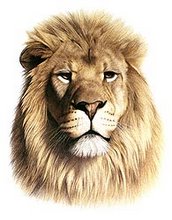B. Home.
________
While some nouns (Frau, Mann, …) have natural gender like in English (a woman is female, a man is male), most nouns have grammatical gender (depends on word ending, or seemingly random).
For example, Mädchen (girl) is neuter, because all words ending in -chen are neuter. Wasser (water) is neuter, but Cola is feminine, and Saft (juice) is masculine.
It is important to learn every noun along with its gender because parts of German sentences change depending on the gender of their nouns.
For now, just remember that the indefinite article (a/an) ein is used for masculine and neuter nouns, and eine is used for feminine nouns. Stay with us to find out how "cases" will later modify these.
________
German genders are strange
Nouns in German are either feminine, masculine or neuter. For example, Frau (woman) is feminine, Mann (man) is masculine, and Kind (child) is neuter.While some nouns (Frau, Mann, …) have natural gender like in English (a woman is female, a man is male), most nouns have grammatical gender (depends on word ending, or seemingly random).
For example, Mädchen (girl) is neuter, because all words ending in -chen are neuter. Wasser (water) is neuter, but Cola is feminine, and Saft (juice) is masculine.
It is important to learn every noun along with its gender because parts of German sentences change depending on the gender of their nouns.
For now, just remember that the indefinite article (a/an) ein is used for masculine and neuter nouns, and eine is used for feminine nouns. Stay with us to find out how "cases" will later modify these.
| gender | indefinite article |
|---|---|
| masculine | ein Mann |
| neuter | ein Mädchen |
| feminine | eine Frau |






Nessun commento:
Posta un commento